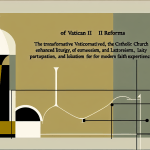The Role of Catholic Education: Nurturing Minds and Spirits
Catholic education plays a vital role in shaping both the academic and spiritual lives of students across the globe. From its rich history to its modern practices, Catholic education is dedicated to providing holistic development that emphasizes not only intellectual growth but also moral values and spiritual formation. In this blog post, we will explore the multifaceted role of Catholic education, its foundational principles, and the impact it has on students, families, and communities.
Understanding Catholic Education
Catholic education refers to the educational institutions operated by the Catholic Church, aiming to provide high-quality instruction grounded in Catholic values. These institutions include preschools, elementary and secondary schools, colleges, and universities. The Church sees education as a means to fulfill the mission of Jesus Christ and to develop students who are not just knowledgeable but also compassionate, ethical, and socially responsible.
Historical Context
Historically, Catholic education has played a pivotal role in many societies. The Church has been instrumental in founding some of the oldest educational institutions, often serving the needs of marginalized communities. In the face of societal challenges, Catholic education has remained steadfast in its commitment to educational excellence while promoting the teachings of Jesus and the Church.
Fundamental Principles of Catholic Education
Catholic education is built on several foundational principles that guide its mission:
-
Integral Development: Catholic education advocates for the holistic development of the student—mind, body, and spirit. It aims to foster not only academic excellence but also personal growth, emotional intelligence, and social skills.
-
Faith Formation: A key element of Catholic education is the integration of faith into the educational experience. This involves teaching students about Catholic doctrine, scripture, and traditions, as well as encouraging them to develop a personal relationship with God.
-
Community Service: Catholic schools often emphasize the importance of service to others, teaching students the value of social justice, compassion, and charity. Community engagement activities are common and help students learn the importance of giving back.
-
Moral Development: Instilling a strong moral foundation is essential. Catholic education focuses on character formation, helping students navigate ethical dilemmas and make choices that reflect Catholic values, such as respect, responsibility, and integrity.
-
Parental Involvement: Recognizing the family as the first teachers, Catholic education encourages strong collaboration between schools and parents. Families are partners in the educational journey, promoting shared values and educational goals.
The Impact of Catholic Education on Students
Academic Excellence
One of the hallmarks of Catholic education is its commitment to academic excellence. Studies have shown that Catholic school students often perform better academically compared to their peers in public schools. This is attributed to smaller class sizes, dedicated teachers, and a focused curriculum that prioritizes critical thinking and problem-solving skills.
Spiritual Growth
Catholic education provides students with opportunities for spiritual growth that extend beyond the classroom. Daily prayer, participation in Mass, and religious retreats are integral parts of the educational experience. This spiritual engagement nurtures a sense of purpose and belonging, helping students to cultivate their faith and live according to its teachings.
Development of Leadership Skills
Catholic education places a significant emphasis on the development of leadership skills. By participating in various extracurricular activities, such as sports, debate club, or student government, students are encouraged to take on responsibilities and develop their leadership abilities. These experiences prepare them for future roles in society and the Church.
Emotional and Social Development
In a nurturing environment that promotes community, students learn to build healthy relationships and develop empathy for others. Catholic education fosters a sense of belonging, helping students to feel valued and understood. This emotional support is crucial during formative years, equipping students with the resilience needed to handle life’s challenges.
The Role of Catholic Education in Today’s Society
Addressing Social Issues
In today’s rapidly changing world, Catholic education plays a crucial role in addressing social issues. By promoting values such as respect for human dignity, economic justice, and care for the environment, Catholic schools prepare students to be responsible citizens who advocate for social change.
Fostering Inclusivity
Catholic education is committed to inclusivity. Schools often welcome students from diverse backgrounds, fostering an environment of acceptance and understanding. This diversity enriches the educational experience, allowing students to learn from each other and appreciate different perspectives.
Promoting Global Awareness
Catholic education encourages global awareness by teaching students about social justice issues affecting communities both locally and globally. Programs and partnerships with missionary organizations and social justice initiatives motivate students to care for those in need, cultivating a sense of global responsibility.
Challenges Facing Catholic Education
While Catholic education has many strengths, it also faces challenges.
Enrollment Trends
One of the significant challenges is declining enrollment in Catholic schools. Many families are opting for public education or alternative private school systems, often due to financial constraints. This decline can lead to school closures, which impacts the availability of Catholic education in some communities.
Economic Challenges
Funding is another pressing issue. Catholic education relies heavily on tuition and the generosity of donors. Economic downturns can affect both families’ abilities to pay tuition and donations from benefactors, leading to financial strain on institutions.
Keeping Up with Technology
As society becomes increasingly technology-driven, Catholic schools must adapt to integrate technology into their curricula while maintaining their core values. Balancing modern educational tools with the principles of Catholic teaching is essential for the future of Catholic education.
Conclusion: The Ongoing Importance of Catholic Education
The role of Catholic education is multifaceted and invaluable. It is not only about academic achievement; it is about nurturing the whole person—mind, body, and spirit. As we navigate the complexities of modern society, the principles and values instilled through Catholic education become even more crucial. By fostering leaders who are committed to justice, compassion, and service, Catholic education is shaping a brighter future for individuals and communities alike.
In summary, Catholic education continues to play a significant role in developing students into not just scholars, but well-rounded individuals prepared to make meaningful contributions to society. By understanding its history, principles, and impact, we can appreciate the profound effect Catholic education has and continue to advocate for its importance in our communities.




